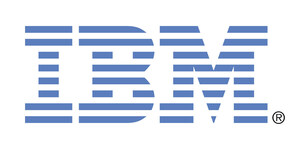MOSCOW, May 10, 2012 /PRNewswire/ -- IBM (NYSE: IBM) announced that several hospitals and clinics from Russia's rapidly evolving regions outside of Moscow and St. Petersburg are partnering with IBM to modernize infrastructure and improve patient care. A number of healthcare providers such as the Hospital of Murom Railway Station, the Clinic of Novosibirsk Institute of Blood Circulation Pathology in Siberia, and the Emergency Hospital of Petrozavodsk have turned to IBM to provide new information management systems giving doctors and medical staff rapid access to medical data and reducing waiting time for patients.
(Logo: http://photos.prnewswire.com/prnh/20090416/IBMLOGO )
According to research from VCIOM (Russia Public Opinion Research Center), 33 percent of Russians prefer to use self-treatment instead of turning to professional medical care due to insufficient healthcare services especially in some of Russia's more remote regions where often curable and manageable diseases often go unchecked and untreated. For that reason, the Russian government is running a special program for healthcare modernization across the country.
As part of its geographic expansion initiative, IBM is actively expanding its business operations in Russia and the Commonwealth of Independent States (CIS) as healthcare is emerging as one of the sectors driving IT growth across the region.
"Technology has a significant role to play in the transformation of healthcare services across Russia especially in Russia's rapidly evolving regions," said Kirill Korniliev, country general manager, IBM Russia/CIS. "Not only does it improve access to critical medical information and improve decision making, it also helps to increase the efficiency of services and reduce patient waiting time. The digitization of core infrastructure is the first step towards intelligent medicine in Russia. The next step is the use of analytics to better understand information helping to mitigate the risk of medical errors."
Improving patient care in Siberia
As the largest cardiology hospital in Siberia, the Clinic of Novosibirsk Institute of Blood Circulation Pathology Meshalkina has turned to IT systems to transform patient care. According to Russian Federal law, medical organizations should store medical records for at least 25 years. Furthermore, with over 15,000 operations performed each year, the clinic needed to effectively manage ever increasing volumes of data.
The system based on IBM storage technologies will allow the clinic to store and retrieve up to one petabyte (the equivalent of 2,000 encyclopedias) of valuable medical information including medical history and images.
"The effective management and high availability of medical information are critical requirements of modern healthcare," said Timur Korovkin, Director of Information Technology of Clinic of Novosibirsk Institute of Blood Circulation Pathology Meshalkina. "The next phase will be to look at analytics technologies to better understand data and possible therapies."
Digitizing patient data of railway workers in Murom
Located in the Vladimir region of the Russian Federation to the East of Moscow, the Hospital of Murom Railway provides healthcare services to over 30,000 railway workers and their families, the government-owned Russian Railways (RZD).
The hospital previously relied on largely paper-based systems for recoding, storing and accessing medical information. Patient information from different hospital departments was not integrated making it nearly impossible for doctors to gain a complete medical picture of their patients.
The hospital implemented an automated information management solution from Russian business partner KMIS running on IBM social software and IBM System x servers. The new integrated system provides doctors and healthcare professionals with a single view of a patient's medical history enabling them to better assess and treat disease more effectively. The system includes test results, such as those for tuberculosis, which are automatically screened for anomalies. Should any be found, the system immediately alerts physicians and schedules a priority appointment, enabling doctors to take proactive measures to treat the disease. By consolidating family medical histories, the system allows doctors to identify any propensities for disease such as diabetes, and take preventive measures to reduce future health risks within the family.
Thanks to the new system, the Hospital of Murom Railway has experienced increased process efficiency by 40 percent, decreased patient waiting time by more than 200 percent and reduced diagnosis and treatment errors by 260 percent.
"We now have the ability to provide swift, high-quality healthcare using an analytics-enabled information system that consolidates patient information onto a single record," said Andrey Galkin, head of the control system department at Murom Railway Station Hospital.
Automating healthcare systems in the Republic of Karelia
IBM is also working with KMIS and the Emergency Hospital of Petrozavodsk in the Republic of Karelia in North Western Russia to implement electronic medical records and an automated hospital information management system for its eight therapy and three diagnostic departments.
The new system which is based on IBM Lotus Notes and Domino software provides unified access to many types of medical data, allowing doctors and medical staff to share and record information and access tests and lab results instantly to improve decision making.
The new system also helps automate many administrative processes throughout the hospital such as appointment booking, work scheduling for doctors, nurses and staff as well as helping to better manage the hospital's financial processes and reporting requirements
"Our doctors now have real-time access a complete archive of a patient's medical data. As a result we have improved our ability to diagnose medical conditions and make optimum decisions for patients," said Andrey Myachin, head of the control system department at the Emergency Hospital of Petrozavodsk.
IBM is engaged in similar projects at other public hospitals throughout Russia including those in the regions of Volgograd, Leningrad, Kirov, Pskov, Perm and Vladimir as well as the Republics of Khakassia and Udmurtia.
IBM has 14 offices across the region including Moscow, St. Petersburg, Krasnoyarsk, Novosibirsk, Perm, Ekaterinburg, Samara, Rostov-on-Don, Kazan, Ufa, Kiev and Dnipropetrovsk (Ukraine), Almaty (Kazakhstan) and Tashkent (Uzbekistan).
About IBM
For more information on IBM visit: http://www.ibm.com/smarterplanet/us/en/healthcare_solutions/ideas
Contacts:
Alexandra Kisel
IBM R/CIS
+7 (985) 761 16 86
[email protected]
Jonathan Batty
IBM Growth Markets Unit
+ 48-693-93-5403
[email protected]
Holli Haswell
IBM US
(720) 396-5485
[email protected]
SOURCE IBM
WANT YOUR COMPANY'S NEWS FEATURED ON PRNEWSWIRE.COM?
Newsrooms &
Influencers
Digital Media
Outlets
Journalists
Opted In





Share this article